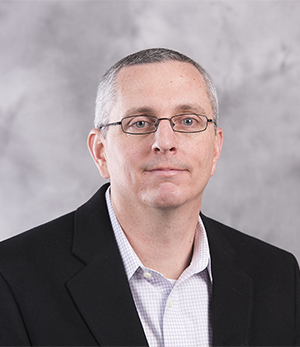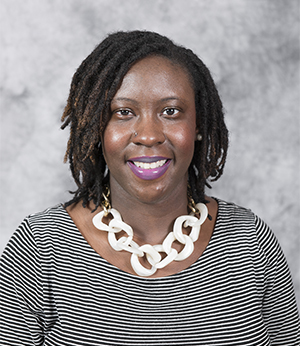WSSU’s Center for the Study of Economic Mobility awards $30,000 in research grants
Winston-Salem State University's Center for the Study of Economic Mobility (CSEM) has announced the selection of its 2018-19 faculty research fellows.
The grants will support two faculty/student research projects that focus on identifying the barriers to economic mobility in Forsyth County. Each CSEM Research Fellow will receive a $15,000 grant award for a total of $30,000.
“Our second set of faculty research fellows continue to illustrate the unique multidisciplinary approach we are taking. We are reframing scientific inquiry to align the incentives of business, individuals, and government, otherwise known as our B.I.G. idea,” said Dr. Craig Richardson, founding director of CSEM and a professor of economics at WSSU. “The result is localized research that we hope will improve both short-term and long-term economic mobility for our poorest citizens in Forsyth County.”
The research projects will be conducted in the summer of 2019.

The fellows and their research questions are:
- Russell Smith, professor of geography in the Department of History, Politics and Social Justice
Research question: “Does urban form influence economic mobility in the poorest communities in Forsyth County, NC?
- Charity Griffin, assistant professor in the Department of Psychological Sciences
Research question: “Can youth-led participatory action research (YPAR) promote upward economic mobility for adolescents duringtransition to adulthood?”
WSSU faculty research proposals were evaluated by a CSEM advisory committee of WSSU faculty, staff and community representatives chaired by Dr. Melicia Whitt, executive director of the Center for Excellence for the Elimination of Healthcare Disparities (CEEHD). The committee passed its recommendations to Richardson and Alvin Atkinson, the associate director of CSEM, who used this data to make their final decisions.
CSEM, which launched in September 2017, serves as a hub for faculty research, undergraduate student research, scholarship and community outreach.

The center is funded through a $3 million grant from the Thurgood Marshall College Fund’s Center for Advancing Opportunity, an initiative supported by The Charles Koch Foundation and Koch Industries.
Children from low-income families in Forsyth County are less likely to move up the income ladder as adults compared to kids almost anywhere else in the United States, according to a study by economist Raj Chetty. Only two counties in South Dakota are worse.
About Winston-Salem State University
Winston-Salem State University fosters the creative thinking, analytical problem-solving, and depth of character needed to transform the world. Rooted in liberal education, WSSU’s curriculum prepares students to be thought leaders who have the skills and knowledge needed to develop innovative solutions to complex problems. Founded in 1892, WSSU is a historically Black constituent institution of the University of North Carolina with a rich tradition of contributing to the social, cultural, intellectual, and economic growth of North Carolina, the region and beyond. Guided by the motto, “Enter to Learn, Depart to Serve,” WSSU develops leaders who advance social justice by serving the world with compassion and commitment.
About the Center for Advancing Opportunity
The Center for Advancing Opportunity expands educational, social, and economic opportunities in our nation’s most fragile communities through original research, educational programs, and direct engagement with residents. By listening to different community voices and supporting scholars and students passionate about making a positive difference, we work to empower people eager to put ideas into action and discover mutually beneficial solutions to bolster fragile communities across the country. Headquartered in Washington, D.C., the Center for Advancing Opportunity is a research and education initiative born out of a partnership with the Thurgood Marshall College Fund, the Charles Koch Foundation, and Koch Industries. The Center supports students and faculty at Historically Black Colleges and Universities (HBCUs) as well as other majority colleges and universities to develop research-based solutions to the most pressing issues in fragile communities.
For more information about the Center for Advancing Opportunity, visit www.advancingopportunity.org.
